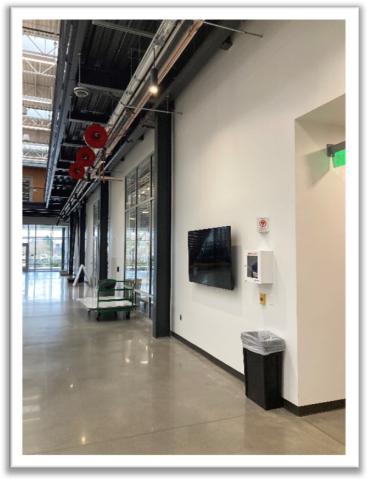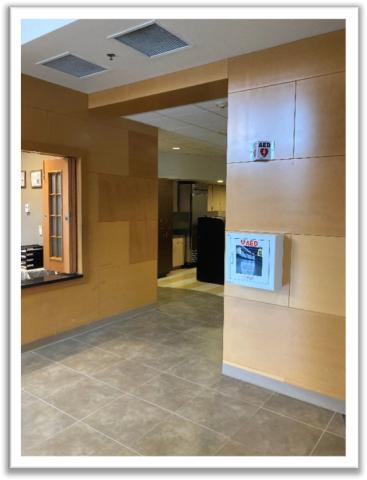Occupational health and safety at CPTC include those programs that provide for the general safety of students, staff, and visitors.
Following the safety and health standards set forth in Section 18 of the Occupational Safety and Health Act of 1970 governed by the Occupational Safety and Health Administration (OSHA) and administered by the Washington State Department of Labor and Industries, the Office of Compliance oversees the college’s safety plans, policies, and committees.
Forms
- Accidental Injury or Occupational Illness Report
- College Work Request Form – Use to request repairs related to Health/Safety only (Type of Request)
- Job Hazard Analysis Form
College Policies
- 6.4 Emergencies/Accidents
- CPTC Hazard Communication Program
- Exposure Control Plan
- Accident Prevention Program
Emergency Exits and Gathering Areas
Emergency exit plans are available on the Emergency Exits and Gathering Areas page.
Links
Washington State Department of Labor and Industries
Anonymously report a safety concern at ABetterCPTC
Training
COVID-19 INFORMATION
According to the CDC, the five-day isolation period for persons testing positive for COVID has been lifted.
This means, you may return to your normal activities when, for at least 24 hours, both of the following are true:
- Your symptoms are getting better overall, and
- You have not had a fever (and are not using fever-reducing medication).
In addition to the virus that causes COVID-19, other types of respiratory viruses, including flu and respiratory syncytial virus (RSV), cause millions of illnesses and thousands of hospitalizations and deaths in the United States each year. You can help protect yourself and others from health risks caused by respiratory viruses. Read the CDC guidelines on respiratory viruses.
We advise you to stay home if you are sick. New guidelines recommend you stay away from others until you are fever-free and have improving symptoms for 24 hours. You do not need to isolate if you have been exposed to COVID-19 or test positive and have no symptoms. Find more specific recommendations for fighting the spread of respiratory viruses.
While there are no specific requirements in place, we continue to recommend that you stay up to date on your vaccines. This is the best way to protect yourself against serious illness, especially among older and more vulnerable populations.
We respect our community members who choose to wear masks.
Document
Automated External Defibrillators (AED)
The college owns and maintains 5 AED devices and they are located





